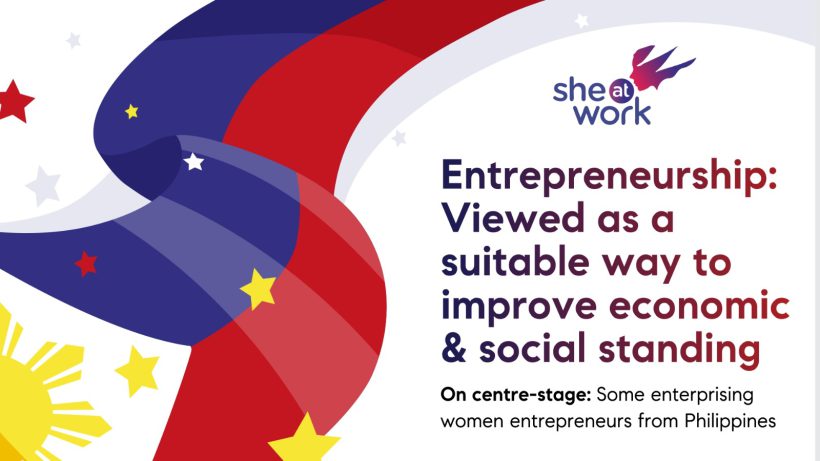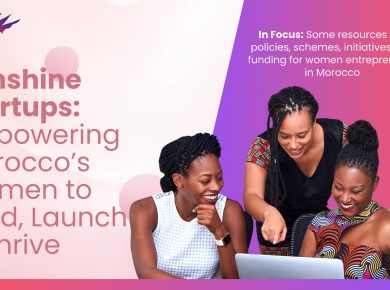On centre-stage: Some enterprising women entrepreneurs from Philippines
Entrepreneurship is seen by Philippine society as a very suitable way to improve one’s economic and social standing. Quite prominently, this social and cultural orientation serves as one of the major drivers promoting entrepreneurship here. Typically, a large domestic market with high consumer spending, coupled with good education and training also drives the population to try entrepreneurial activities.
And in Philippines, the Filipino women are active as entrepreneurs. Data from the Department of Trade and Industry for 2009 show that 54 percent of enterprises are owned by women.
Here’s presenting some enterprising women entrepreneurs of Philippines.
> Chow Paredes, Co-founder, Zipmatch
Belonging to a family of lawyers, Chow Paredes is a licensed real estate broker. Being passionate about selling is what led her to the real estate sector.
After years of selling condominiums for various property developers, she decided to take the plunge into entrepreneurship in 2013. That’s when she co-founded ZipMatch – now a driving force in the economy. ZipMatch is one of the Philippines’ leading real estate portals that lists and reviews properties for sale and rent.
Through ZipMatch, Paredes is empowering property brokers by adding to the business value – and doing business without a strong sense of customer service. Her team helps in going the extra mile in client servicing.
> Maria Ressa, Co-founder, Rappler
In the cutting-edge and innovative journalism space, you will discover few start-ups making great strides like Rappler – an independent social news organization in the Philippines co-founded by Maria Ressa.
An accomplished journalist, she has worked at CNN for almost two decades before heading the news and current affairs division of ABS-CBN, the Philippines’ biggest media conglomerate.
At Rappler, Ressa is reimagining journalism through technology. Rappler fuses investigative reports and videos with crowdsourced news, and amplifies their reach using social media, and the start-up has built a strong community here. Apart from being a news site, Rappler serves as a platform for civic engagement. Its Move.ph arm is focused on helping address age-old problems – like corruption, climate change, and hunger.
Rappler balances its ideals with a business model that is unique and offers clients a combination of native advertising, social media engagement, and data.
> Reese Fernandez-Ruiz, President & Co-founder, Rags2Riches
Since 2007, Reese Fernandez-Ruiz and her team have been helping women in poor communities in the Philippines – to etch out a living from weaving eco-ethical fashion and home accessories for their startup Rags2Riches.
She was recognized by Forbes in its prestigious 30 Under 30 Social Entrepreneurs, describing her that she belongs to “an elite group of people who are directing their talent and conviction to better the world.”
Fernandez-Ruiz’s Rags2Riches sells accessories created out of – upcycled scrap cloth, organic materials, and indigenous fabrics online and in retail stores. Before Rags2Riches entered the picture, the women were engaged in handicraft production and had fallen prey to middlemen, who unfairly controlled their access to the market.
> Valenice Balace, Founder, Peekawoo
After the launch in 2013, dating site Peekawoo has grown its user base, launched iOS and Android apps, raised funds from three investors. Plus BBC, Google Business Groups, and The Wall Street Journal have created international buzz around the startup.
Of course, this was something she never expected, especially since Peekawoo is pitted against popular dating apps like Tinder and Skout. Peekawoo caters to young women who still want to take a traditional but ‘fun’ approach to dating. Peekawoo is different because it has a women-dominated team.
> Aisa Mijeno, Founder, SALt
Having worked in the IT industry till 2008, Aisa Mijeno quit – to pursue her desire to do volunteer work. First, she applied for the position of direct dialogue campaigner at non- government organization Greenpeace, where she was exposed to the living conditions of poor families in rural areas. She realised that for these families, life stops after sunset. And, lighting up their homes takes a lot of effort. They had to cut wood to create fire, or walk long hours to the nearest town to buy fuel for their lamps.
This experience led her to the idea for her startup – SALt or Sustainable Alternative Lighting. With help from Philippine incubator Ideaspace Foundation, she developed a lamp that doesn’t require electricity, batteries, or even fuel to run – just salt and water. Her team aims to bring the lamp to poor homes in the region.
> Au Soriano, Co-Founder & CEO, PinoyTravel
An unusual experience led Au Soriano’s to move ahead – to start her own set-up. It was watching people fighting for bus seats while holding smartphones and tablets at a station in Manila, one fateful day, during Holy Week of 2012.
That experience prompted her to create her startup – PinoyTravel, the Philippines’ first online provincial bus booking system and among the first batch of startups funded by Ideaspace Foundation.
Today, PinoyTravel is a welcome innovation which is helping modernize the Philippines’
problematic bus industry.










